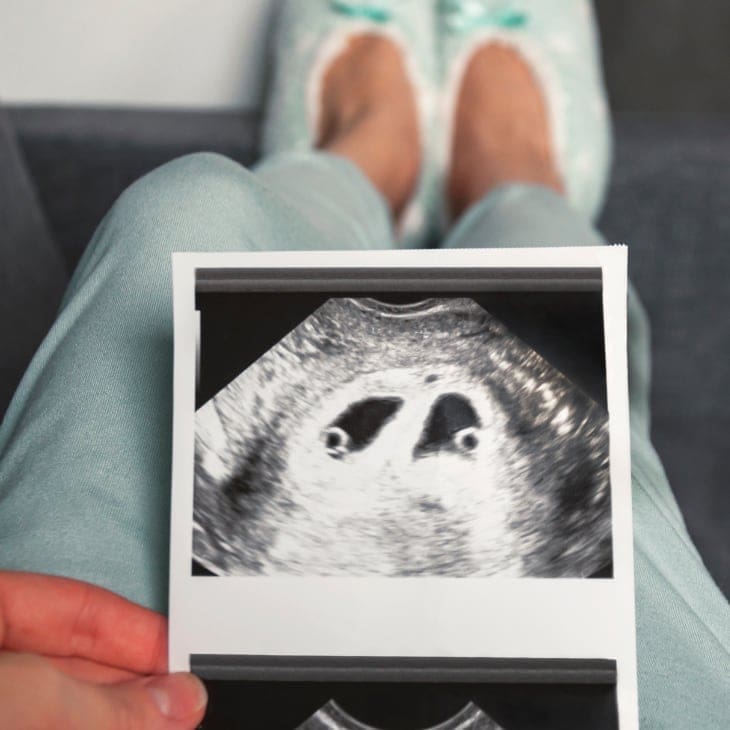
early every woman who’s delivered a child, notices some changes to her body—and not all of them are visible. In the aftermath of baby bliss, some may be small aggravations that are easy to deal with. Others may pose chronic problems that are a bigger challenge.
When 33-year-old Ann Stephens delivered twins in 1980, it took a toll she was still dealing with more than three decades later. “Together, the twins weighed in at 14 pounds,” she remembers. “I didn’t have a stomach after that. I had to have a surgery about 10 years afterward because my stomach just couldn’t go back by itself. I didn’t have the surgery to look good. I had it so everything worked again.”
Three years later, Stephens had to have a hysterectomy. “I was still big down there. It just didn’t go back to normal at all. After that, things were fine until I was 68.”
Stressing Over Leaky Bladder

In her late 60s, Stephens grappled with unwanted urine leaks. At first, they weren’t so bad, but steadily grew worse over time. For years, she suffered in silence. “It’s not really something you talk about, but times are changing—which is good,” she admits.
Tired of wearing pads, she finally talked with her primary care physician even though she didn’t really think anything could be done to improve her situation. Her doctor recommended she see Tracy Cannon-Smith, M.D., FPMRS.
“Dr. Cannon-Smith was just so direct that it made it easy to talk about it,” Stephens explains.
Dr. Cannon-Smith diagnosed Stephens with stress urinary incontinence and walked her through her treatment options.
“For women who leak when they cough, sneeze, laugh, get up out of a chair or move their body a certain way, there are a lot of good treatment options—not just major surgery,” she explains. “Women love to say, there’s nothing you can do about it. Not true. It’s not a normal part of aging. There’s a lot we can do to stop leaks.”
Stopping the Leaks

Dr. Cannon-Smith recommended Bulkamid, a minimally invasive outpatient procedure.
“Bulkamid is a substance that is injected into the urethra to bulk it up and prevent urine from escaping the bladder when it shouldn’t,” she says. “The substance is actually 97 percent water.”
A tiny scope is used to guide the Bulkamid’s placement near the sphincter muscle. When injected, Bulkamid bulks up the urethral tube to increase resistance so it’s less likely that urine will leak out.
The procedure only takes about 10 minutes. There are no incisions. Women go home the same day and can resume all normal activities in 72 hours including exercise and intercourse.
Most women experience immediate results with no or minimal leaking after treatment. Three out of four report their stress incontinence leaks are cured or improved after Bulkamid.
Stephens had the Bulkamid procedure in October 2020.
Life with Less Leaks

“It was a nothing surgery. No pain,” she says. “Dr. Cannon-Smith gave me pain meds to take when I went home, but I didn’t use them. I didn’t need them. I went for quite a while without any leaks. Now I might have one leak a day, some days not any. So, it’s much better.”
Stephens admits that sometimes she gets busy and doesn’t think about going to the bathroom. “Now I try to make sure I go to the bathroom every two hours or sooner. That helps a lot. Most of the time, I don’t feel like I have to go to the bathroom, but if I sit down, the movement triggers a leak.”
Dr. Cannon-Smith says some women may require a “top-up” treatment. “Sometimes women come back and say I’m 80 percent or 90 percent better, but they want a little bit more Bulkamid to bulk up their urethra a little bit more. So, if a woman isn’t where she wants to be after three months, we can bulk up that urethra a little bit more with a second injection.”
Stephens is glad she had the Bulkamid procedure.
“Before Bulkamid, it was a lot harder to deal with my stress incontinence than it is now,” she adds. “I can wear a pad and not have a problem. Every time I see Dr. Cannon-Smith, she knows exactly what to do to help make my situation better. It’s so good to know there are things you can do to improve incontinence. I really didn’t before. Even though it’s a very personal thing that a lot of people don’t want to talk about, it’s no different than any other health issue. To be embarrassed about it is something we have to get over. Don’t let embarrassment keep you in a really bad situation when you can do something about it.
“As you get older, you have far less in front of you than you do behind you. You don’t have time to be silly about all this stuff. You need to take care of it.”
Do you suffer from stress urinary incontinence?
The compassionate incontinence specialists at Urology Partners will help you take charge of your bladder. We offer effective treatment options for every type of incontinence. Call 866-367-8768 or schedule an online appointment.


